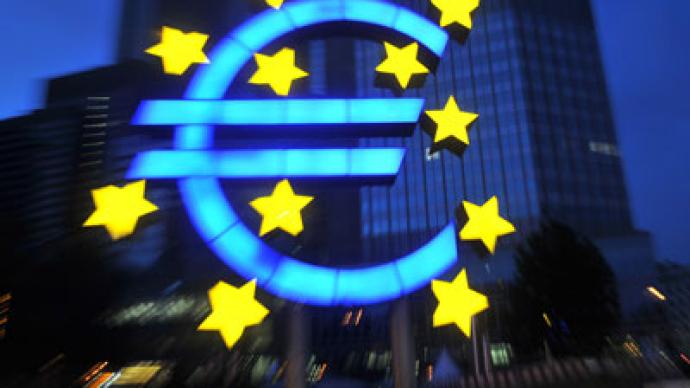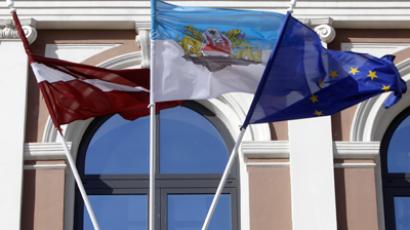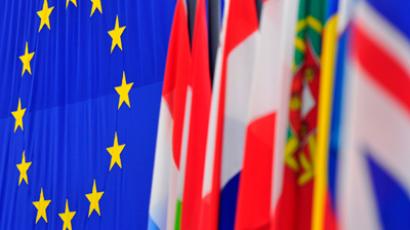Latvia to join eurozone in 2014

Despite continuing recession in the eurozone another country is joining. Latvia is switching from the lat to the euro next year.
The transition to the common European currency is going to happen on January 1, 2014, as Latvian President Andris Berzins signed the law to introduce the euro on Friday. In January the legislation was adopted by the Latvian parliament. After the adoption Latvian Foreign Minister Edgars Rinkevics said the country had already met the Maastricht criteria and would request a convergence report from the European Commission and the European Central Bank on Latvia's readiness to join. “'From an economic and financial point of view, we do not see anymore hurdles in joining the euro-zone,” Rinkevics said, the Baltic Course reported. Latvia’s Prime Minister Valdis Dombrovskis says “the alternative to the eurozone is being relegated to the periphery of Europe… joining the eurozone is in Latvia’s best long-term interests.”A TNS survey shows over 63% of the population do not support the decision. The low level of public support made it possible for a referendum will be held on the issue. Last week, however, Harmony Center, Latvia’s biggest opposition party said it won’t seek a referendum on the euro. “Harmony Center considers delaying the ‘Euro adoption policy law’ to be an irresponsible action” since an elected parliament made the decision said Janis Urbanovics, the party’s parliamentary leader.Latvia will become the 18th country to join the euro area, and the second Baltic state to do so. Lithuania intends to adopt the Euro by January 2015. The 2008 crisis made joining the euro less attractive for some countries, with Poland and the Czech Republic deciding not to enter the monetary union. For Latvia the adoption of the euro may work as it has seen how other euro countries weathered the sovereign debt crisis, believes Yaroslav Lissovolik, chief economist at Deutsche Bank in Moscow.“In case the observance of fiscal stability criteria is stricter and adhered to by Latvia and other eurozone members, Latvia should be more in a position to benefit from the framework of the eurozone to boost growth, trade and investment with its partners,” Lissovolik told RT. Though Latvia is one of the poorest EU countries Lissovolik explains that “its level of income is less of an issue,” compared to the “capability of the economy to exhibit sustainable growth and to ensure macroeconomic stability.” “The latter will be the crucial factor for the net effect of Latvia's entry into the Eurozone on the overall stability of the European monetary system,” he says. “In the short-term the benefits of Latvia's entry might not be as pronounced as the eurozone continues to face challenges this year. However, in the longer term as the European economy comes out of recession, we expect Latvia to benefit from greater investment and trade flows on the back of closer economic integration with eurozone partners,” Lissovolik added.The eurozone includes 17 members of the European Union, sharing a common currency and monetary policy. The euro area has seen economic output fall 0.6% in the fourth quarter of 2012 according to Eurostat, which is 0.2% higher that experts predicted. The 4Q recession followed a 0.1% drop in the 3Q and was driven by the eurozone’s biggest economies, Germany and France, and only Slovakia and Estonia managing to show positive dynamics at the end of 2012. The drop in two quarters in a row was the steepest since the first quarter of 2009. According to Eurostat, 2012 was the first calendar year for the eurozone with no quarter showing economic growth.














